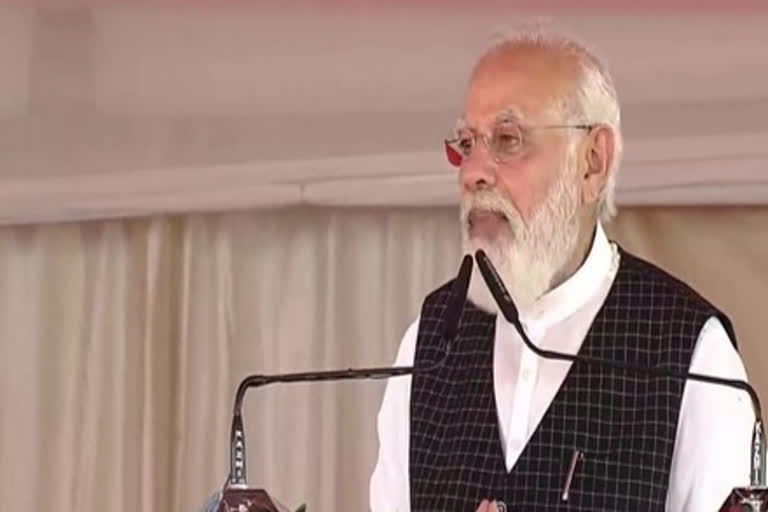Varanasi: Prime Minister Narendra Modi on Monday launched the Pradhan Mantri Atmanirbhar Swasth Bharat Yojana (PMASBY), a scheme for strengthening healthcare infrastructure across the country, from Varanasi in Uttar Pradesh. The PM also inaugurated various development projects worth more than Rs 5,200 crore for his constituency.
Addressing the launch event, Modi slammed the previous governments in the Centre and said that the health infrastructure of the nation was not given attention for a long period of time after independence. "For a long time after independence, not much attention was paid to health and healthcare facilities. People who governed the nation for a long time, kept the healthcare system devoid of facilities instead of facilitating its development. Villages either didn't have hospitals or no doctors in hospitals. Block hospitals didn't have testing facilities, if test reports came in, there was doubt on its results," Modi said.
"The present Centre government and the state government understand the pain of the poor, downtrodden, oppressed and backward class people. We are working day and night to improve health facilities in the country," he further said.
Read: Medical colleges will give a boost to health infrastructure in UP, says PM
The Prime Minister said that the Centre's 'Sabko vaccine, muft vaccine' nationwide campaign is going ahead successfully. "In its fight against Coronavirus pandemic, the nation has achieved a major milestone of administering 100 crore vaccine doses. With the blessings of Baba Vishwanath, Maa Ganga and trust of the people of Kashi, the campaign of 'Sabko vaccine, muft vaccine' is going ahead successfully," Modi said.
According to Prime Minister's Office, the objective of PMASBY is to fill gaps in public health infrastructure, especially in critical care facilities and primary care in both urban and rural areas. It will provide support for 17,788 rural health and wellness centres in 10 high focus states. Further, 11,024 urban health and wellness centres will be established in all the states.
Through the scheme, critical care services will be available in all the districts of the country with more than five lakh population through exclusive critical care hospital blocks, while the remaining districts will be covered through referral services. People will have access to a full range of diagnostic services in the public healthcare system through a network of laboratories across the country, and integrated public health labs will be set up in all the districts.
Under the scheme, a national institution for one health, four new national institutes for virology, a regional research platform for WHO South East Asia Region, nine biosafety level-III laboratories, five new regional national centre for disease control will be set up.



